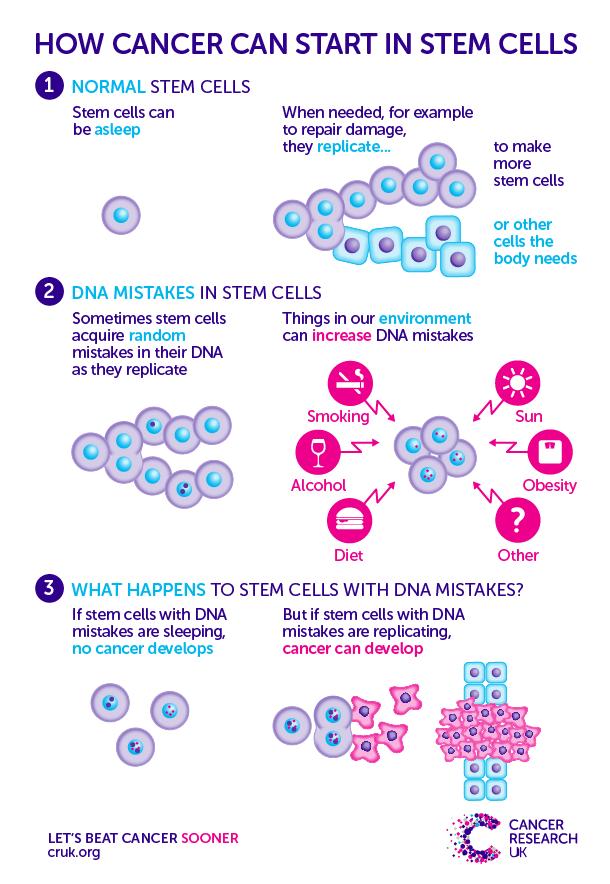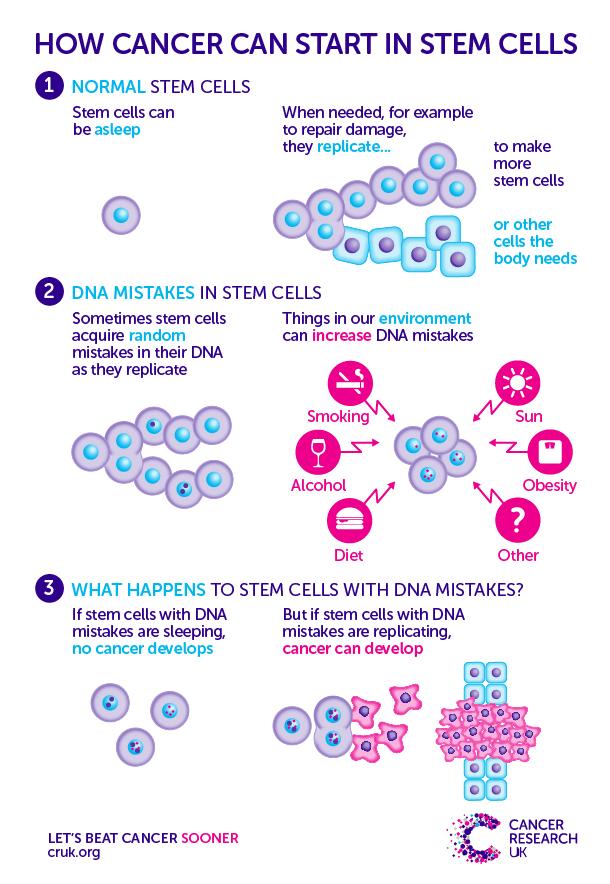
SCIENTISTS have demonstrated for the first time the 'perfect storm' of conditions that cells need to start forming cancer, helping to explain why some organs are more susceptible to developing the disease, according to a new study published in Cell today (Thursday).
The research,* carried out by scientists at Cancer Research UK's Cambridge Institute at the University of Cambridge and St Jude's Children's Research Hospital in the United States, shows that cancers are more likely to start in stem cells – special cells that copy themselves so the body can grow new cells, repair damaged tissue and replace old cells.
But while these stem cells are more susceptible to developing into cancer, they also need to have accumulated DNA mistakes and be replicating to repair damage or wear and tear for cancers to start.
These DNA mistakes can happen randomly as stem cells replicate and they tend to build up with age, which is why cancer gets more common as we get older. They can also be caused by things in our environment such as tobacco smoke or UV radiation.
To find out how cancers start in different organs the researchers tagged one particular group of cells in mice with a fluorescent dye to track their behaviour. They then introduced DNA mistakes linked to different types of cancers into these cells.
Importantly, they found that DNA mistakes by themselves were not enough to cause cancer. In organs where DNA mistakes were introduced into dormant stem cells, there were no signs of cancer.
Yet, in other organs that are exposed to lots of wear and tear – like the bowel – introducing DNA mistakes into the replicating stem cells caused cancer to start.
Professor Richard Gilbertson, lead researcher based at Cancer Research UK's Cambridge Institute at the University of Cambridge, said: "We can now say that cancer most likely starts in stem cells but is not just down to 'bad luck'. The development of cancer involves a 'perfect storm' of stem cells containing DNA mistakes that are replicating in response to damage or wear and tear.
"Although stem cells can sometimes go wrong by chance, our research shows that things in our environment that lead to more DNA mistakes or that damage organs, causing these stem cells to divide, increases the chances of the 'perfect storm' brewing. That's why behaviours like smoking or UV exposure raise the risk of developing cancer.
"Our work also shows why some types of cancer are more common than others, with tumours more likely to develop in organs with lots of replicating stem cells, for example the bowel."
"We hope finding out more about the way in which cancer develops will help us, and other scientists around the world, develop new ways to prevent and treat cancer."
Professor Karen Vousden, Cancer Research UK's chief scientist, said: "The study looks at the perplexing question of why we get cancer more often in some organs than others. This risk seems to be dictated by a combination of mutations in cancer-causing genes in stem cells, stem cell proliferation and tissue damage – which vary between different organs."
###
Media Contact
Simon Shears
[email protected]
44-203-469-8054
@CR_UK
http://www.cancerresearchuk.org





